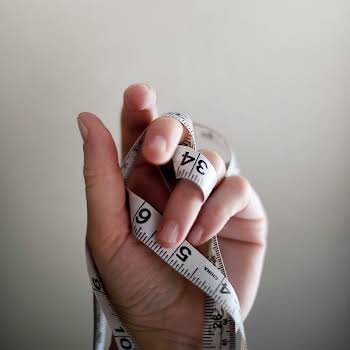
By Jennifer McShane
14th Mar 2016
14th Mar 2016
A new study has shed light on the effects of dieting in relation to losing weight. If you are thinking of cutting calories to stay healthy, remember to keep up the regular exercise routine as well, as new research suggests that it’s exercising that limits more calories, not a rigorous diet plan alone.
Researchers at Loughborough University have found that exercising is more effective than dieting in limiting how many calories a person eats.
The study set out to determine how exercising?and restricting diet?changed a woman’s physical and behavioural responses to food.
During the study, women were first asked to restrict their diet by 3,500 kilojoules, or around 836 calories, for eight hours. They?were then invited to eat freely?at a buffet where researchers measured?what they consumed.
In the second part of the study, researchers asked the women to burn the same amount of calories they had previously cut from their diet with moderate exercise lasting 90 minutes.?After exercising, the women were then again invited to eat freely at a buffet.
The results showed that women ate 944 calories on average at the buffet when they restricted their diets, compared with 660 after exercising, which if you’re going by the numbers, is a pretty significant difference.
The reason for said difference?thought to be because limiting food intake causes a spike in the hunger hormone ghrelin and a drop in levels Peptide YY, which suppresses hunger.
However, the findings of the pilot’study contradict?previous evidence which shows that exercise makes people, and particularly women, eat more.
Dr Stensel, a Reader in Exercise Metabolism in Loughborough’s School of Sport, Exercise and Health Sciences, said: ?We’ve shown that exercise does not make you hungrier or encourage you to eat more – at least not in the hours immediately following it.?
?It is clear that a balance of diet and exercise is critical to maintaining a healthy weight. The message from this study reinforces this, showing that you can expend energy and without a large drive to replace it,” he explained.
This isn’t the first study to support this idea, as previous research by Stensel’s team found that intense exercise like running or a spin class reduced the hunger hormone, but moderate activities like walking didn’t have the same effect.
British Dietetic Association spokeswoman Claire Pettitt said that the study is small and further research is needed into the longer term effects of exercise on appetite, and she recommended that both be taken into consideration if you are trying to lose weight.
?I would still recommend anyone attempting to lose weight and or maintain a healthy weight and lifestyle should be mindful of both their dietary habits and physical activity levels.?
But she added that while the study is small, it is important because previous research has “largely focused on men.”
While these findings are interesting, it affirms that there is no ‘one size fits all’ approach to dieting. however, if you’ve yet to kickstart a fitness routine for the year and you’re aiming for a healthier lifestyle in 2016, now might be the time to get that in gear.
Via Shape























